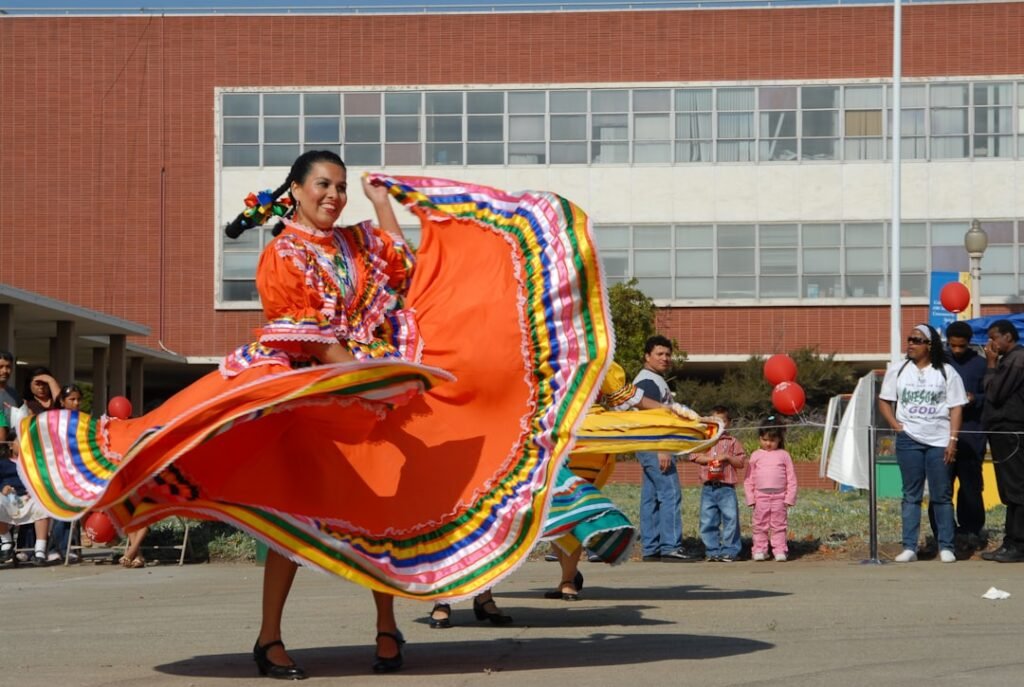Now Reading: Top Old-School RPGs: A Nostalgic Journey
-
01
Top Old-School RPGs: A Nostalgic Journey
Top Old-School RPGs: A Nostalgic Journey

As I reflect on the golden age of old-school RPGs, I can’t help but feel a wave of nostalgia wash over me. This era, spanning from the late 1970s to the early 1990s, was a time when gaming was not just a pastime but an immersive experience that transported players into fantastical worlds. The simplicity of the graphics and the limitations of technology did not hinder the creativity and depth of storytelling.
Instead, they fostered a unique charm that defined the genre. I remember the excitement of unrolling a map, flipping through pages of manuals, and gathering with friends to share strategies and tales of our adventures. During this period, role-playing games were often played on tabletop platforms or early home computers.
The allure of creating a character, embarking on epic quests, and battling formidable foes was irresistible. I found myself lost in the intricate narratives and complex character development that these games offered. The sense of community was palpable; we would gather in basements or living rooms, armed with dice and character sheets, ready to dive into a world where our imaginations could run wild.
It was a time when every decision mattered, and the outcomes were often unpredictable, making each session a unique experience.
Key Takeaways
- The Golden Age of Old-School RPGs:
- Old-school RPGs were at their peak in the 80s and 90s, with iconic titles like Ultima, Wizardry, and Baldur’s Gate setting the standard for the genre.
- Classic RPGs That Shaped the Genre:
- Games like Final Fantasy, Dragon Quest, and The Elder Scrolls played a pivotal role in shaping the classic RPG experience, with their immersive worlds and engaging storytelling.
- Nostalgic Memories of Playing Old-School RPGs:
- Many players fondly remember spending hours exploring dungeons, battling monsters, and making tough moral choices in old-school RPGs, creating lasting memories of epic adventures.
- The Evolution of Old-School RPGs Over the Years:
- Old-school RPGs have evolved to incorporate modern graphics, gameplay mechanics, and storytelling techniques, while still retaining the core elements that made them beloved by fans.
- Rediscovering Old-School RPGs in the Modern Era:
- With the resurgence of retro gaming and the availability of classic titles on digital platforms, a new generation of players is rediscovering the magic of old-school RPGs.
- What Made Old-School RPGs Stand Out:
- Old-school RPGs stood out for their deep character customization, non-linear storytelling, and immersive worlds that allowed players to truly role-play their characters.
- The Influence of Old-School RPGs on Modern Gaming:
- Old-school RPGs have had a profound impact on modern gaming, influencing everything from open-world exploration to moral decision-making in games today.
- Tips for New Players Exploring Old-School RPGs:
- New players should take their time to immerse themselves in the rich lore and gameplay mechanics of old-school RPGs, and not be afraid to experiment with different character builds and choices.
Classic RPGs That Shaped the Genre
When I think about the classic RPGs that shaped the genre, titles like “Dungeons & Dragons,” “Final Fantasy,” and “Chrono Trigger” immediately come to mind. Each of these games brought something unique to the table, influencing countless others that followed. “Dungeons & Dragons,” for instance, laid the groundwork for role-playing mechanics that are still prevalent today.
The concept of character classes, leveling up, and collaborative storytelling became staples in RPG design. I remember my first encounter with D&D; it was like stepping into a new reality where I could be anyone I wanted to be. “Final Fantasy” revolutionized the genre with its rich storytelling and memorable characters.
I was captivated by the emotional depth of its narratives and the intricate worlds it created. Each installment introduced new gameplay mechanics while maintaining a sense of continuity that kept players engaged. “Chrono Trigger,” on the other hand, pushed boundaries with its innovative time-travel mechanics and multiple endings.
The ability to influence the story based on my choices made me feel like an integral part of the narrative. These classic RPGs not only defined my gaming experience but also set a high standard for future titles.
Nostalgic Memories of Playing Old-School RPGs

The memories I have of playing old-school RPGs are some of my most cherished. I can vividly recall the first time I booted up “The Legend of Zelda” on my NES. The thrill of exploring Hyrule, solving puzzles, and battling Ganon was exhilarating.
I spent countless hours wandering through dungeons, collecting items, and uncovering secrets. The sense of accomplishment I felt after defeating a particularly challenging boss is something I still reminisce about today. Another fond memory is gathering with friends for marathon gaming sessions.
We would take turns playing “Baldur’s Gate” or “Planescape: Torment,” sharing our thoughts on character builds and plot twists. The camaraderie we built during those sessions was as rewarding as the games themselves. We would laugh, strategize, and sometimes even argue over decisions made in-game, but it all added to the experience.
Those moments forged lasting friendships and created a shared history that we still talk about today.
The Evolution of Old-School RPGs Over the Years
As time marched on, old-school RPGs began to evolve in response to technological advancements and changing player expectations. The transition from 2D graphics to 3D environments marked a significant shift in how stories were told and experienced. I remember being awestruck by the first time I saw a fully rendered 3D world in “Final Fantasy
However, this evolution also brought challenges. As developers sought to create more complex narratives and intricate gameplay mechanics, some of the charm of old-school RPGs began to fade. The simplicity that once defined the genre was often replaced by convoluted systems that could overwhelm new players.
Despite this shift, I found that many developers still paid homage to their roots by incorporating elements from classic RPGs into their designs, ensuring that the spirit of old-school gaming lived on.
Rediscovering Old-School RPGs in the Modern Era
The Resurgence of Old-School RPGs
In recent years, I’ve noticed a growing interest in classic RPGs among veteran gamers and new players alike. This renewed enthusiasm has been fueled by remakes and remasters of beloved titles, allowing me to relive those cherished experiences with updated graphics and quality-of-life improvements.
### Reviving Classic Experiences
Games such as “Final Fantasy VII Remake” have not only rekindled my love for the original but also introduced a new generation to its timeless story.
### Indie Developers Embracing Retro Aesthetics
Additionally, indie developers have adopted the retro aesthetic, creating new games that capture the essence of old-school RPGs while adding fresh twists. Titles like “Undertale” and “Octopath Traveler” pay homage to classic mechanics while offering innovative gameplay experiences.
### Rediscovering the Joy of RPGs
Rediscovering these gems has been a delightful journey for me, as they remind me of why I fell in love with RPGs in the first place.
What Made Old-School RPGs Stand Out

What truly made old-school RPGs stand out was their ability to create immersive worlds filled with rich lore and memorable characters. The narratives were often complex, weaving together themes of friendship, sacrifice, and heroism in ways that resonated deeply with players like me. Each game felt like an epic saga waiting to be explored, with every choice impacting the outcome of my journey.
Moreover, the character development in these games was unparalleled. I cherished the moments when my characters would grow stronger, learn new abilities, and form bonds with one another. The emotional investment I had in their journeys made every victory feel earned and every defeat sting just a little bit more.
This connection to characters is something that many modern games strive for but often struggle to replicate.
The Influence of Old-School RPGs on Modern Gaming
The influence of old-school RPGs on modern gaming cannot be overstated. Many contemporary titles borrow heavily from the mechanics and storytelling techniques pioneered by their predecessors. Turn-based combat systems, character classes, and intricate world-building are just a few examples of how old-school RPGs have shaped the landscape of modern gaming.
I often find myself drawing parallels between classic titles and newer releases. For instance, games like “Persona 5” incorporate turn-based combat while infusing it with social simulation elements reminiscent of older RPGs. This blending of genres showcases how far gaming has come while still honoring its roots.
It’s fascinating to see how developers continue to innovate while paying tribute to the classics that laid the groundwork for what we enjoy today.
Tips for New Players Exploring Old-School RPGs
For those new to old-school RPGs, diving into this rich genre can be both exciting and daunting.
Don’t be discouraged if you find yourself struggling at first; every seasoned player has faced challenges along their journey.
Another piece of advice is to take your time exploring the worlds these games offer. There’s so much to discover beyond just completing quests; hidden treasures, side stories, and character interactions can enhance your experience significantly. Engage with NPCs (non-playable characters) and immerse yourself in the lore; it’s often where some of the most rewarding moments lie.
Lastly, don’t hesitate to seek out communities online or locally where you can share your experiences and learn from others. The camaraderie I found among fellow gamers enriched my journey through old-school RPGs immensely. Whether through forums or social media groups, connecting with others who share your passion can provide valuable insights and enhance your enjoyment of these timeless classics.
In conclusion, old-school RPGs hold a special place in my heart as they shaped not only my gaming experiences but also my understanding of storytelling and character development in video games. As I continue to explore both classic titles and modern interpretations, I am reminded of the magic that these games bring into our lives—a magic that transcends generations and continues to inspire new players every day.
If you’re a fan of old-school RPGs, you’ll definitely want to check out this article on the ultimate emulators best for Android and PC. Emulators allow you to play classic RPGs from consoles like the SNES, Sega Genesis, and more on your modern devices. With the help of these emulators, you can experience the nostalgia of playing timeless RPGs like Final Fantasy, Chrono Trigger, and more. Check out the article here to learn more about how you can relive the magic of these top old-school RPGs.
FAQs
What are old-school RPGs?
Old-school RPGs, or role-playing games, are a genre of video games that typically feature a deep and immersive story, character development, and strategic combat. These games often have a top-down or isometric view and are known for their challenging gameplay and intricate world-building.
What are some popular old-school RPGs?
Some popular old-school RPGs include “Baldur’s Gate,” “Planescape: Torment,” “Fallout,” “Ultima,” “Chrono Trigger,” “Final Fantasy VI,” “The Elder Scrolls II: Daggerfall,” and “Diablo.”
What platforms are old-school RPGs available on?
Old-school RPGs were originally released on platforms such as PC, Super Nintendo, PlayStation, and other older gaming consoles. Many of these games have been re-released or remastered for modern platforms such as PC, PlayStation 4, Xbox One, and Nintendo Switch.
What are the key features of old-school RPGs?
Old-school RPGs often feature turn-based or real-time combat, a party-based system where players control multiple characters, a focus on exploration and discovery, and a rich narrative with branching storylines and multiple endings. These games also typically include character customization and progression through leveling up and acquiring new skills and abilities.
Why are old-school RPGs still popular today?
Old-school RPGs are still popular today because of their timeless gameplay mechanics, engaging storytelling, and nostalgic appeal for gamers who grew up playing these classic titles. Additionally, many modern games have been influenced by the design and mechanics of old-school RPGs, leading to a continued interest in the genre.



























